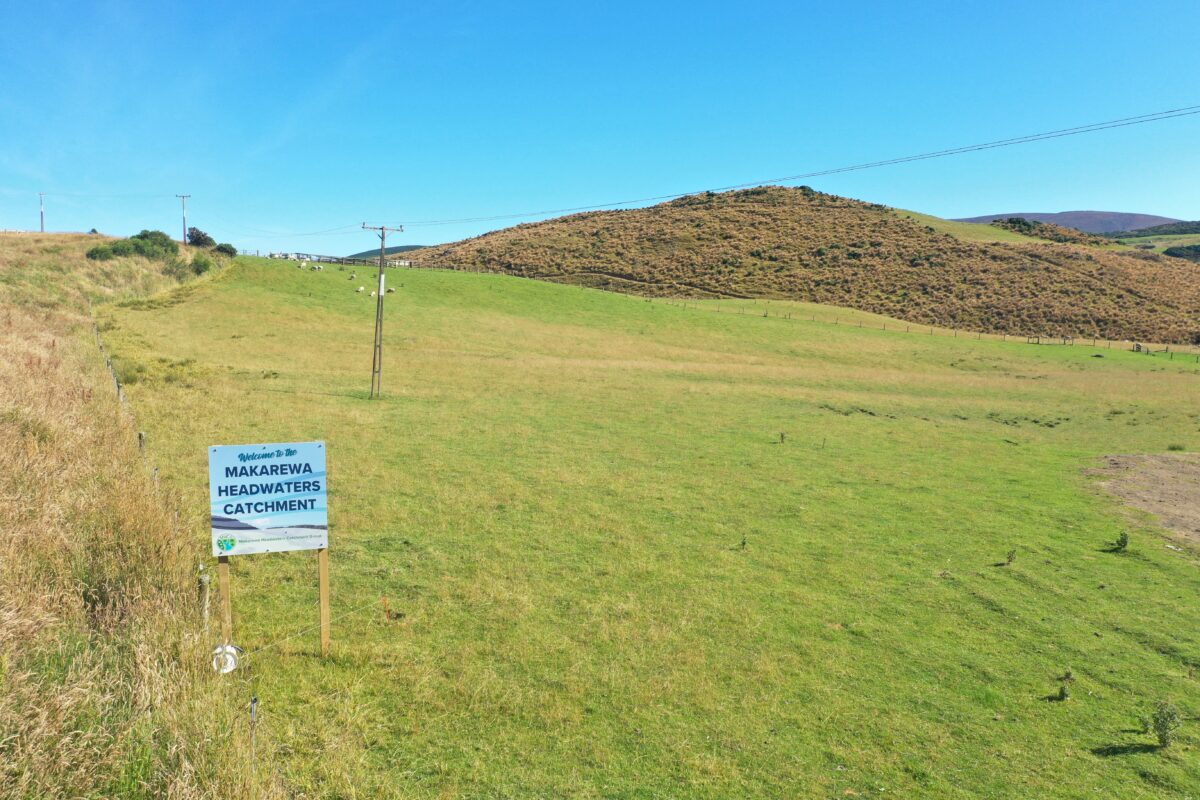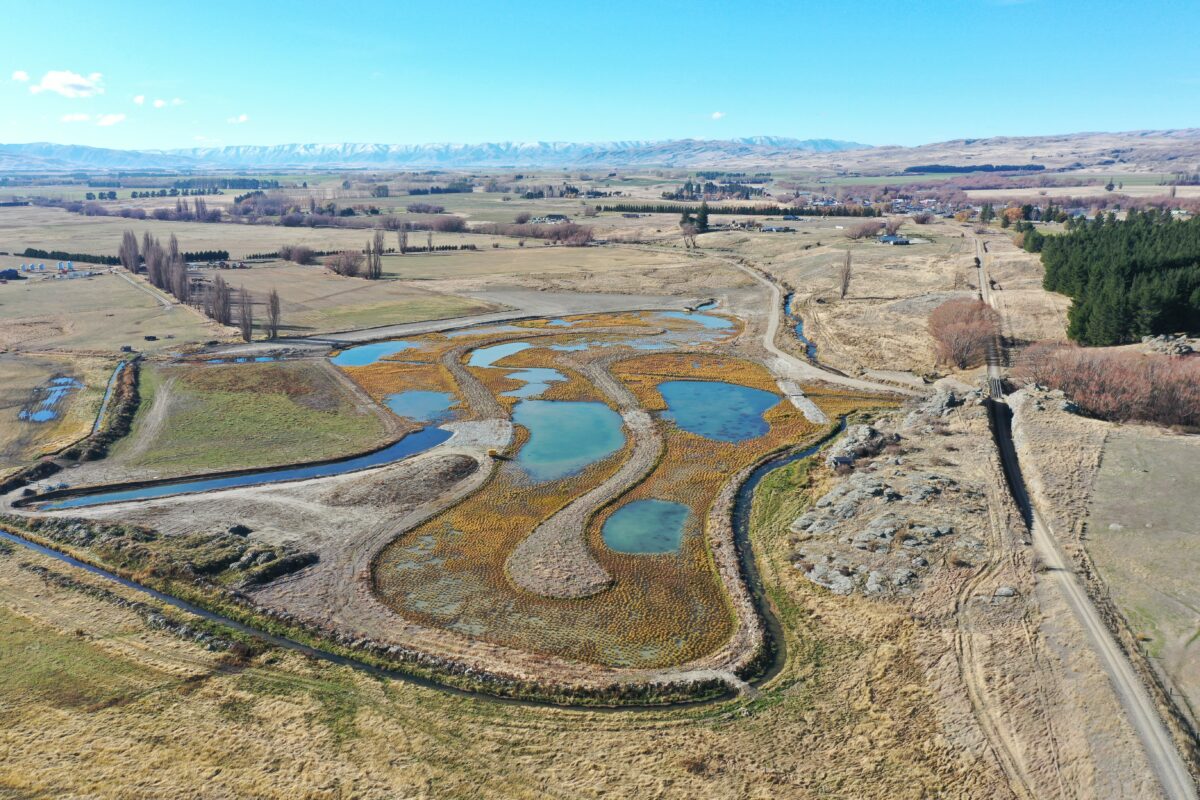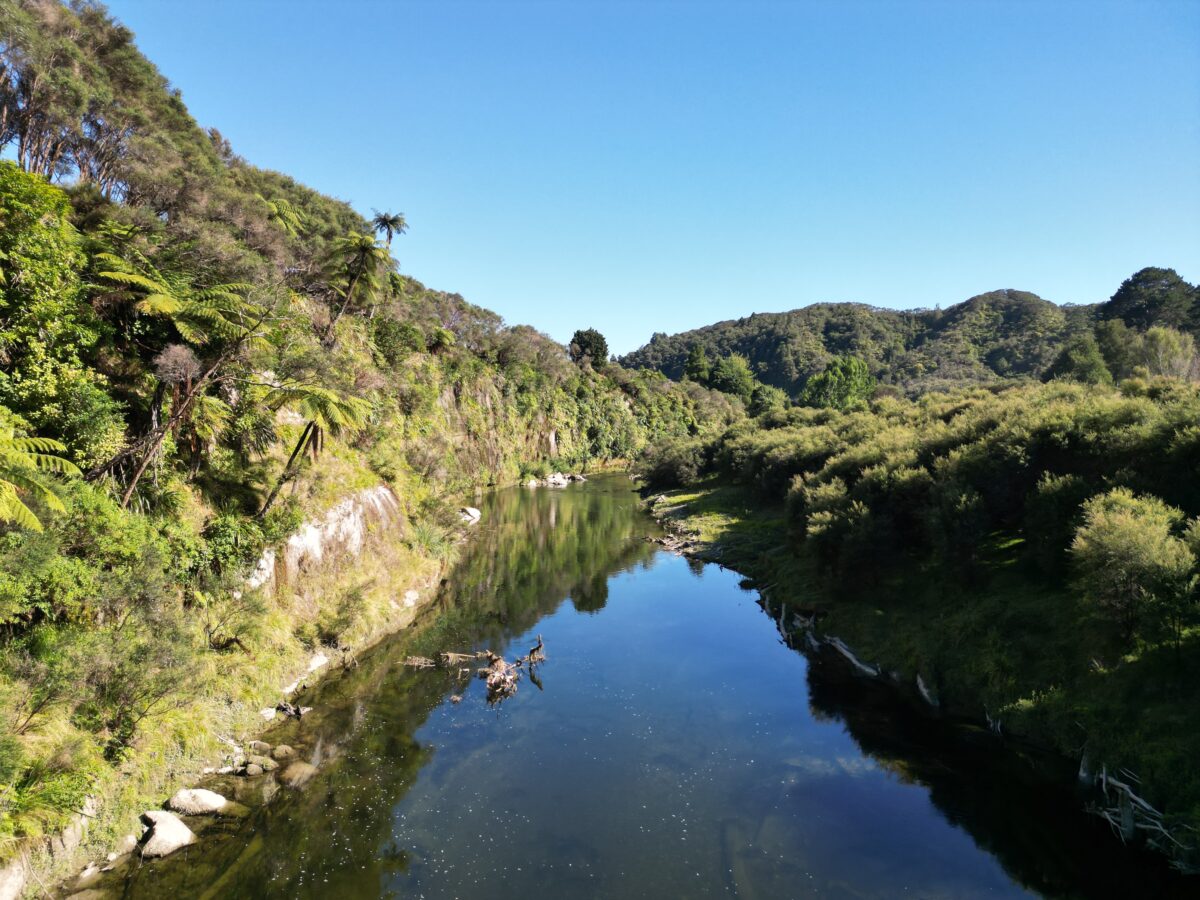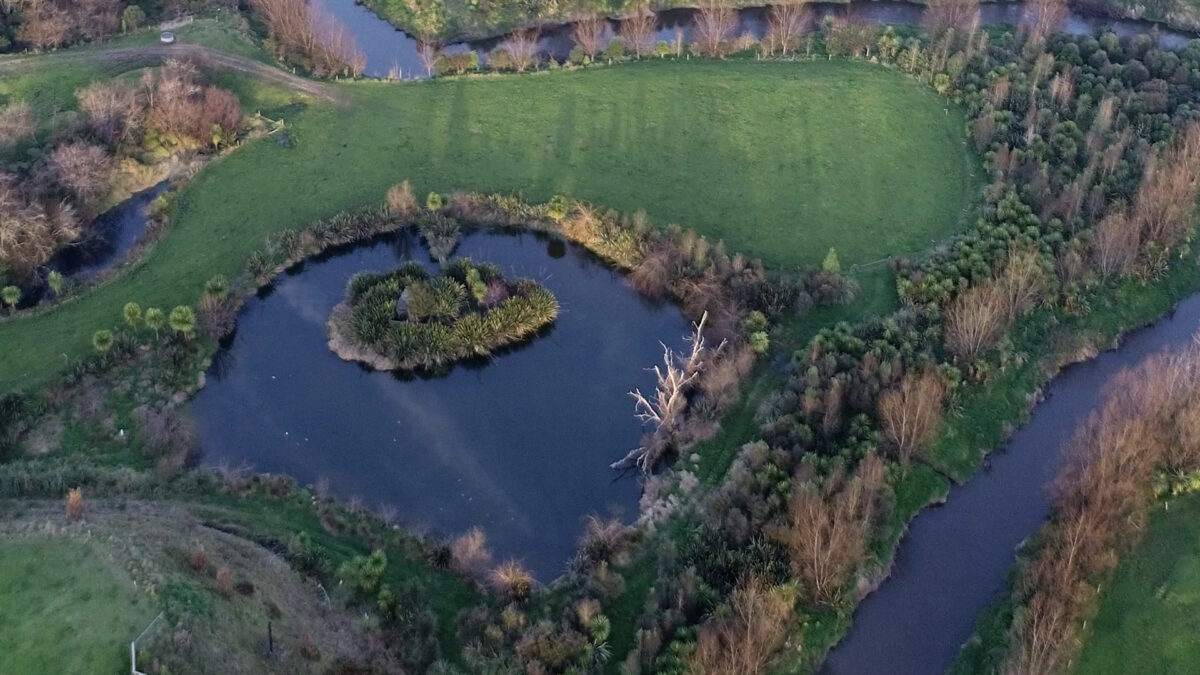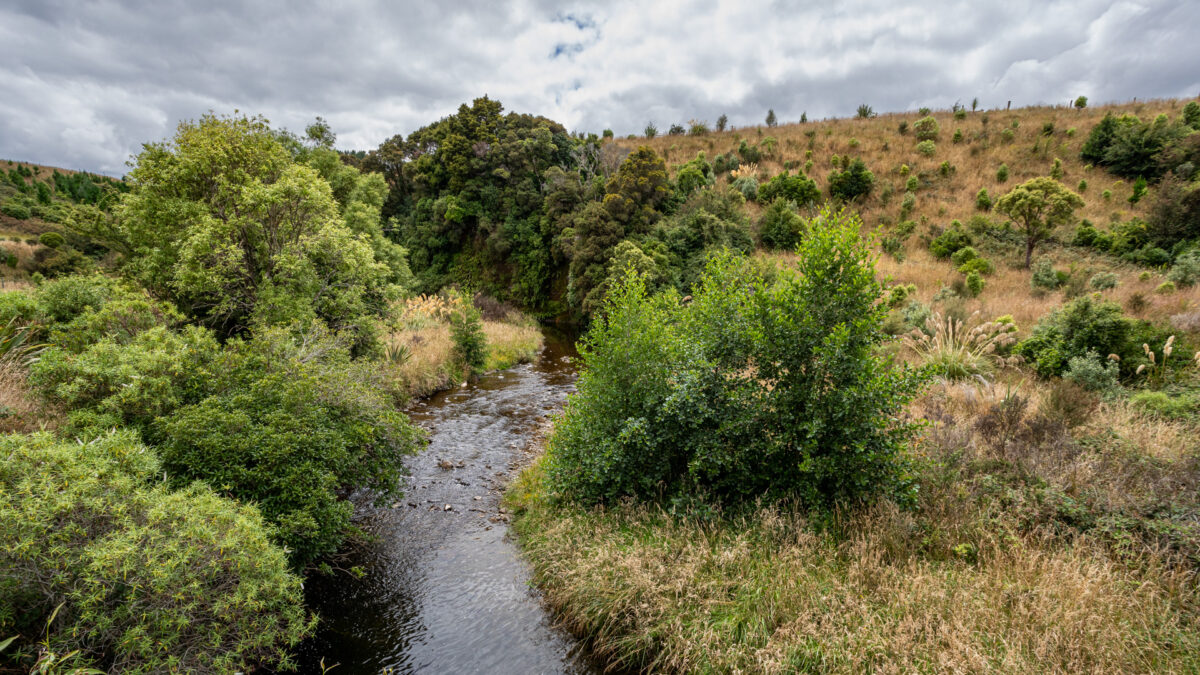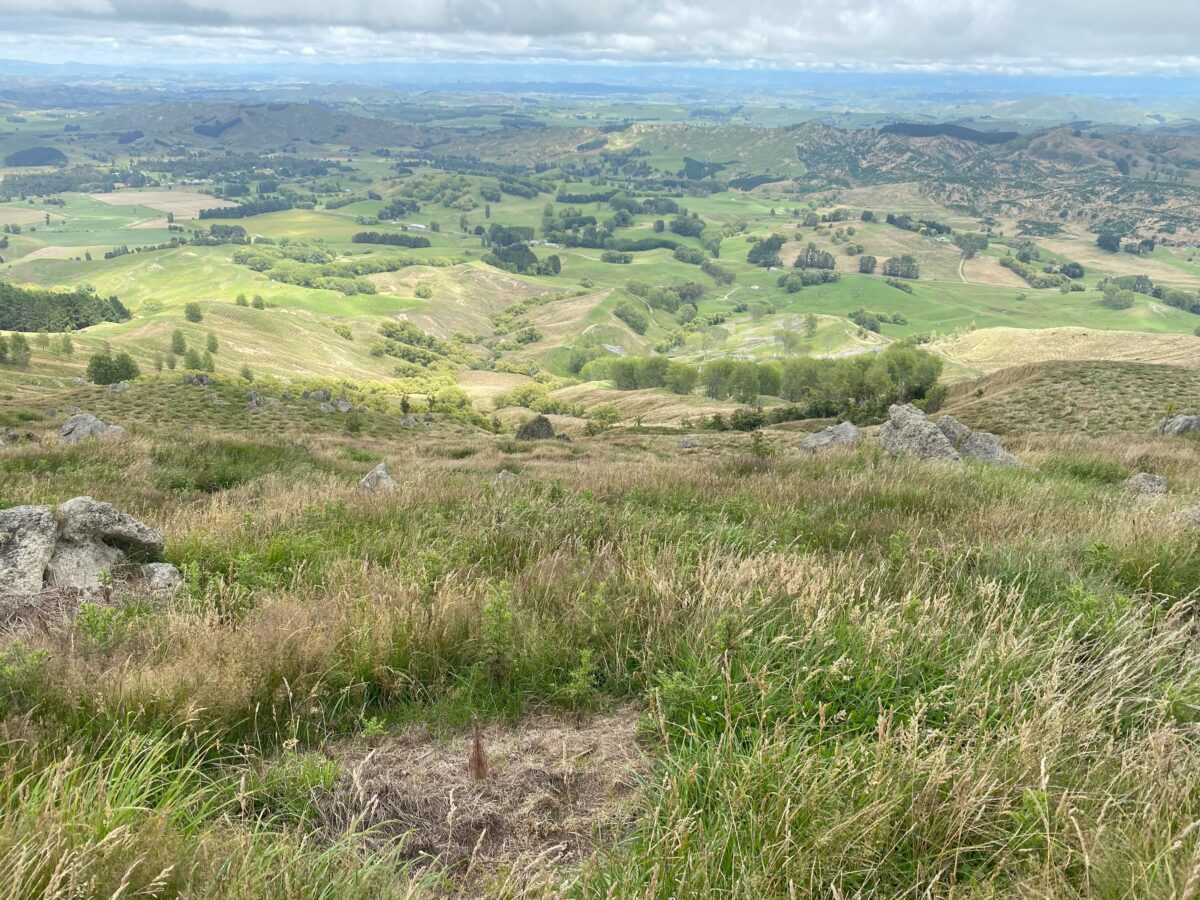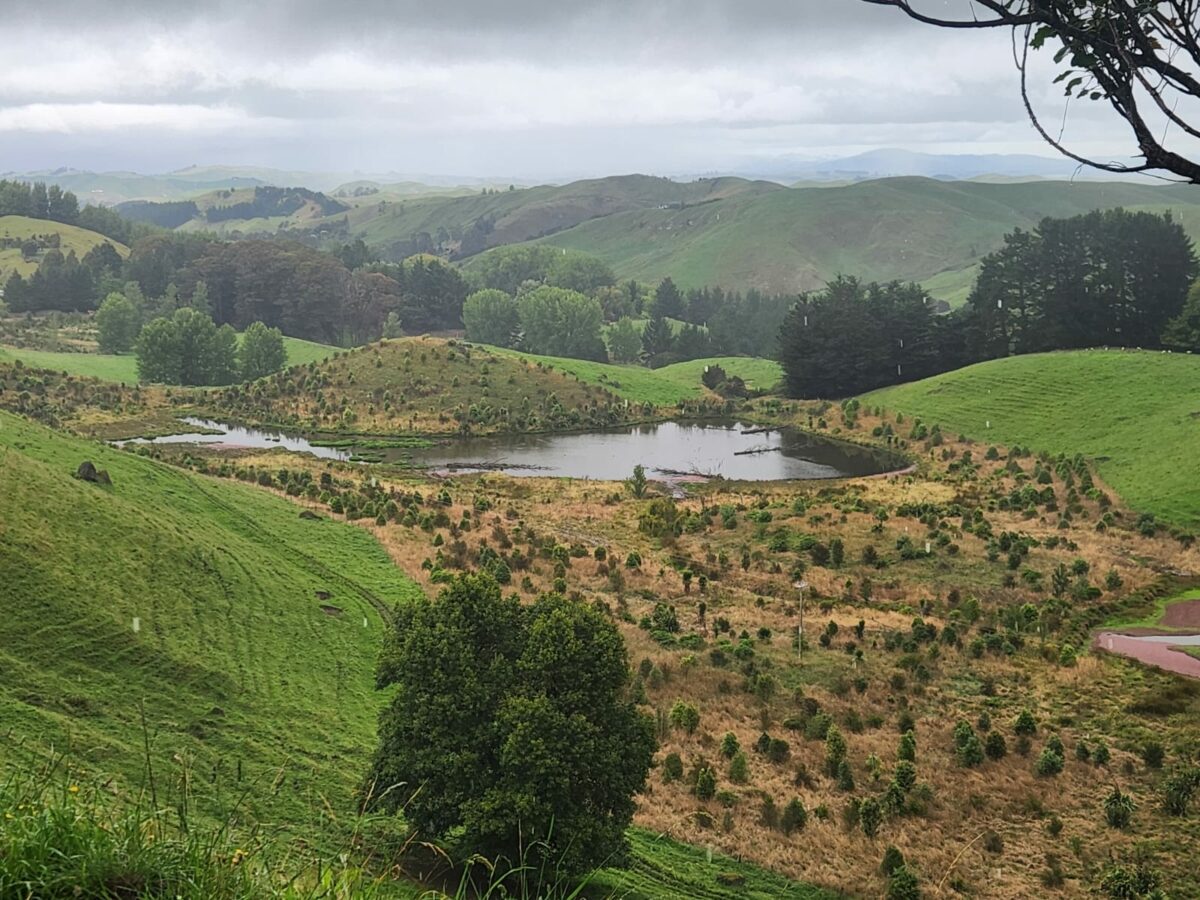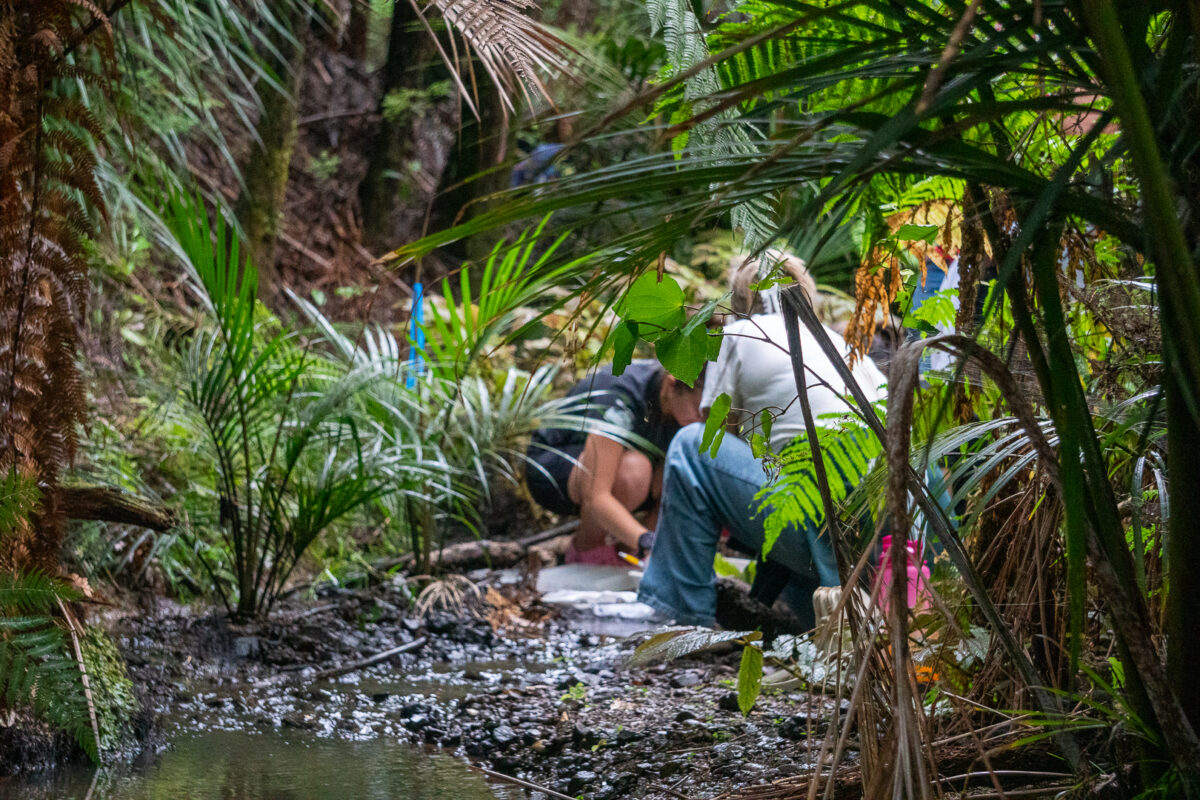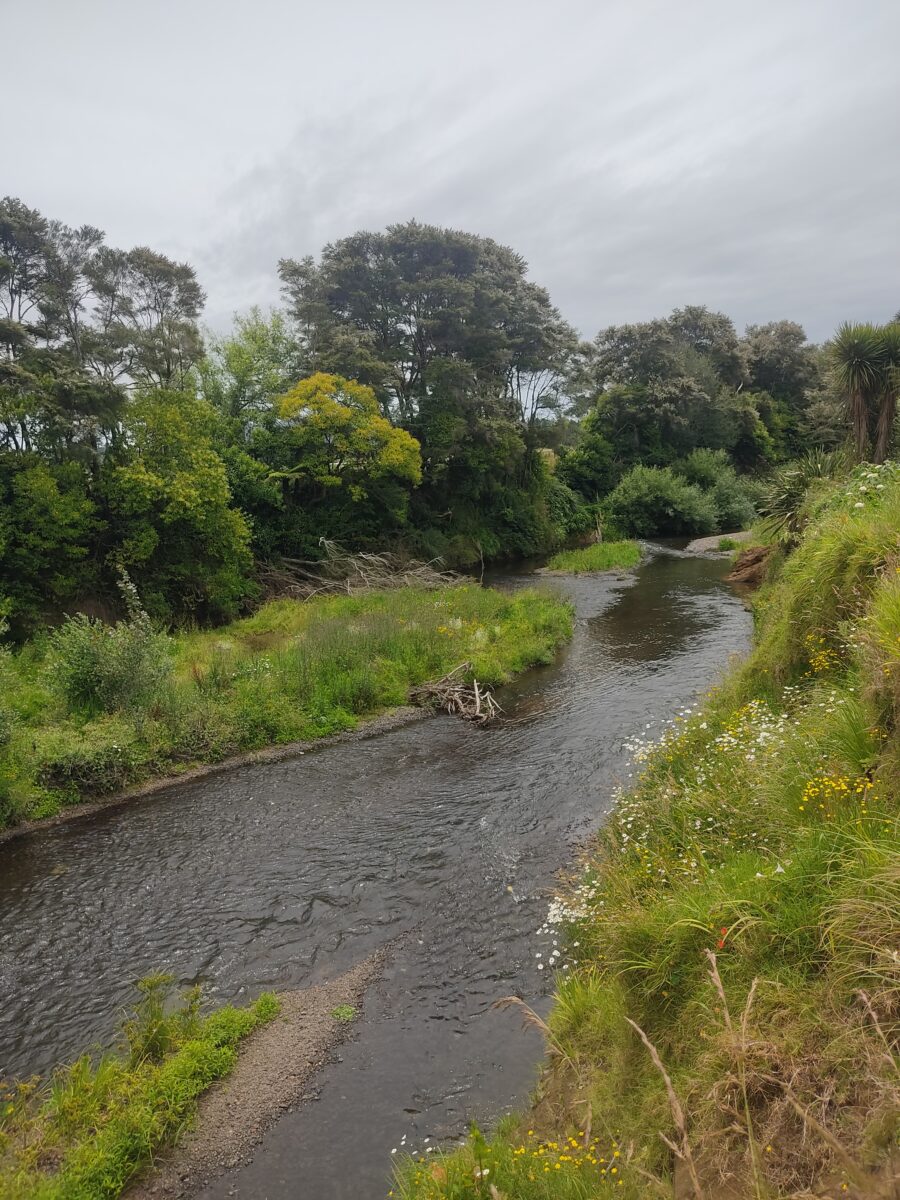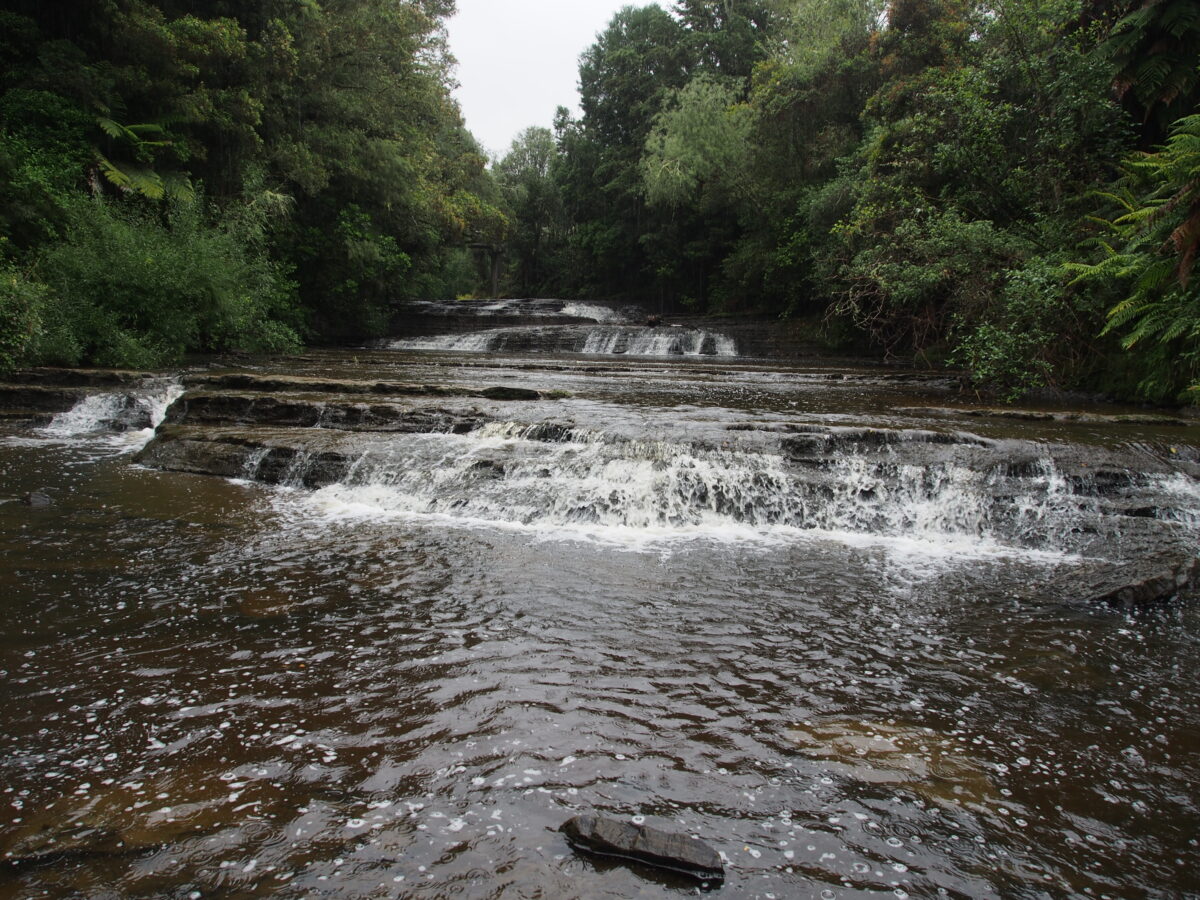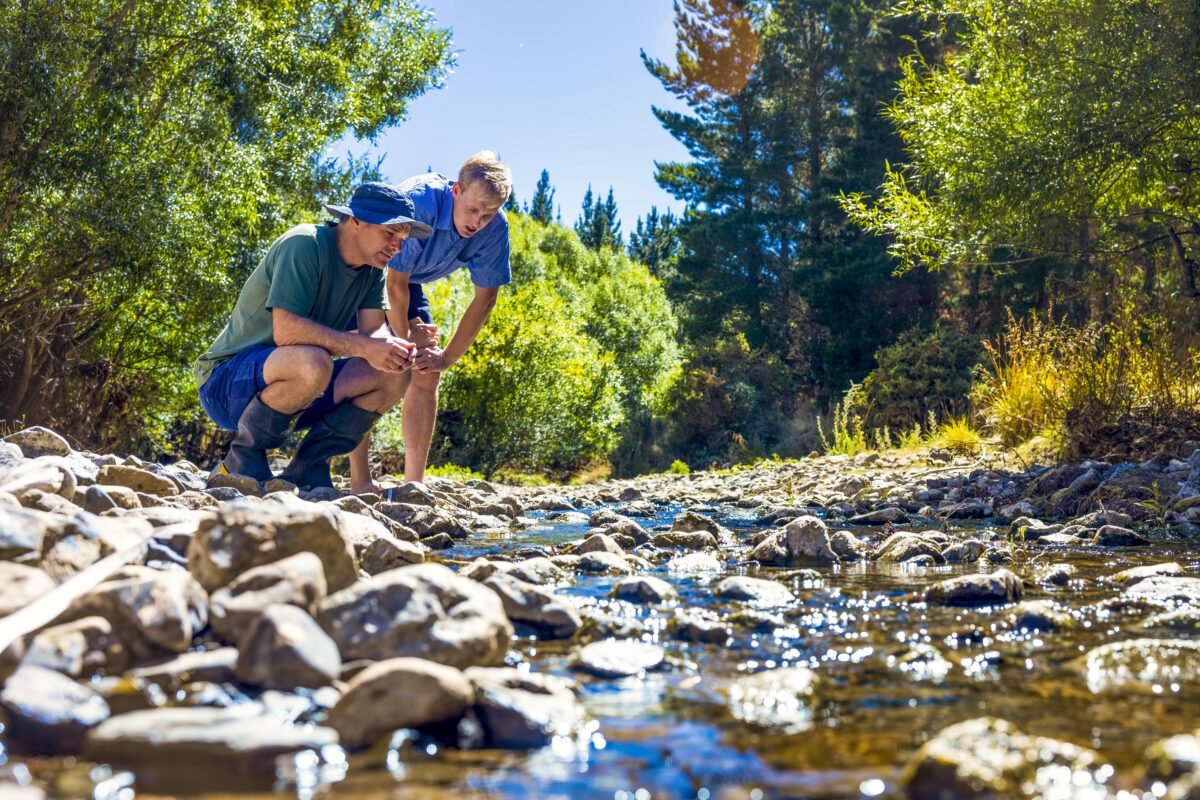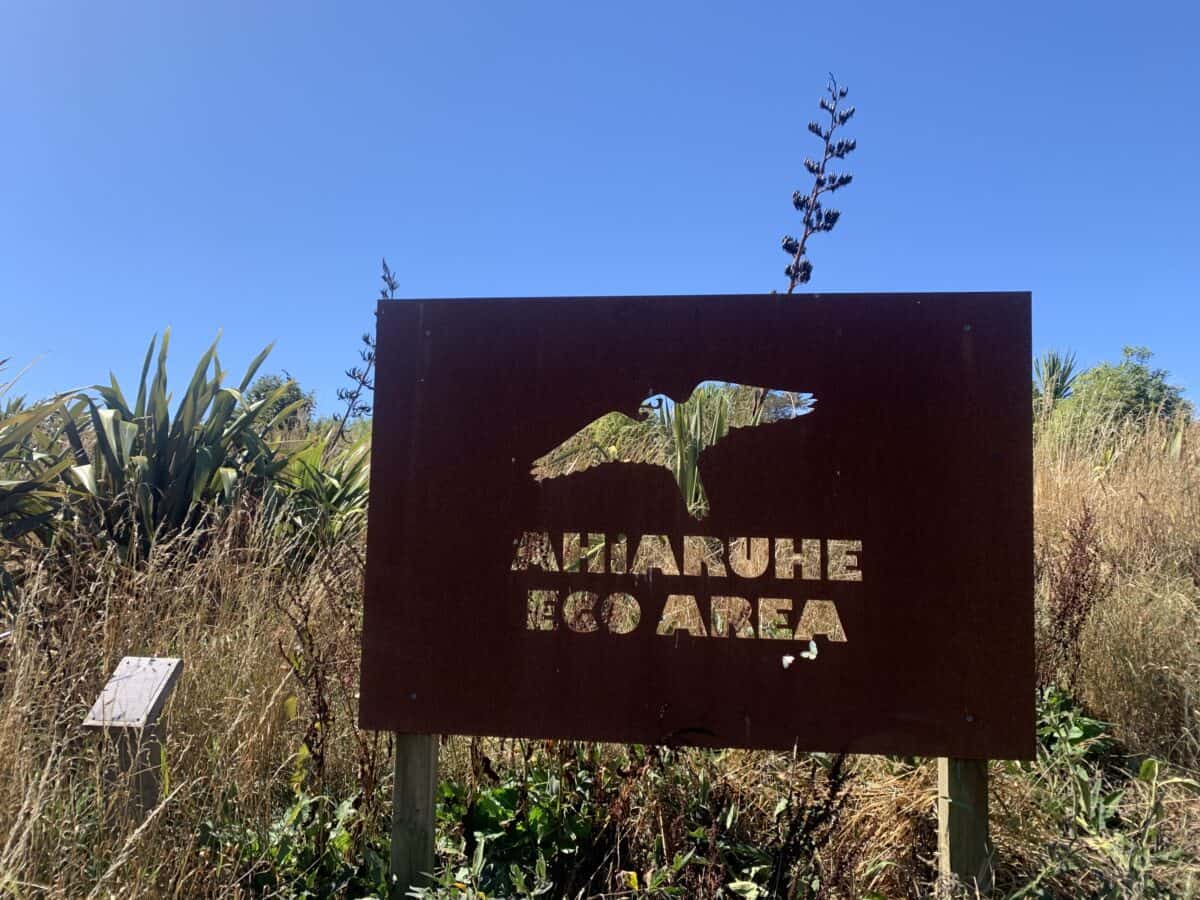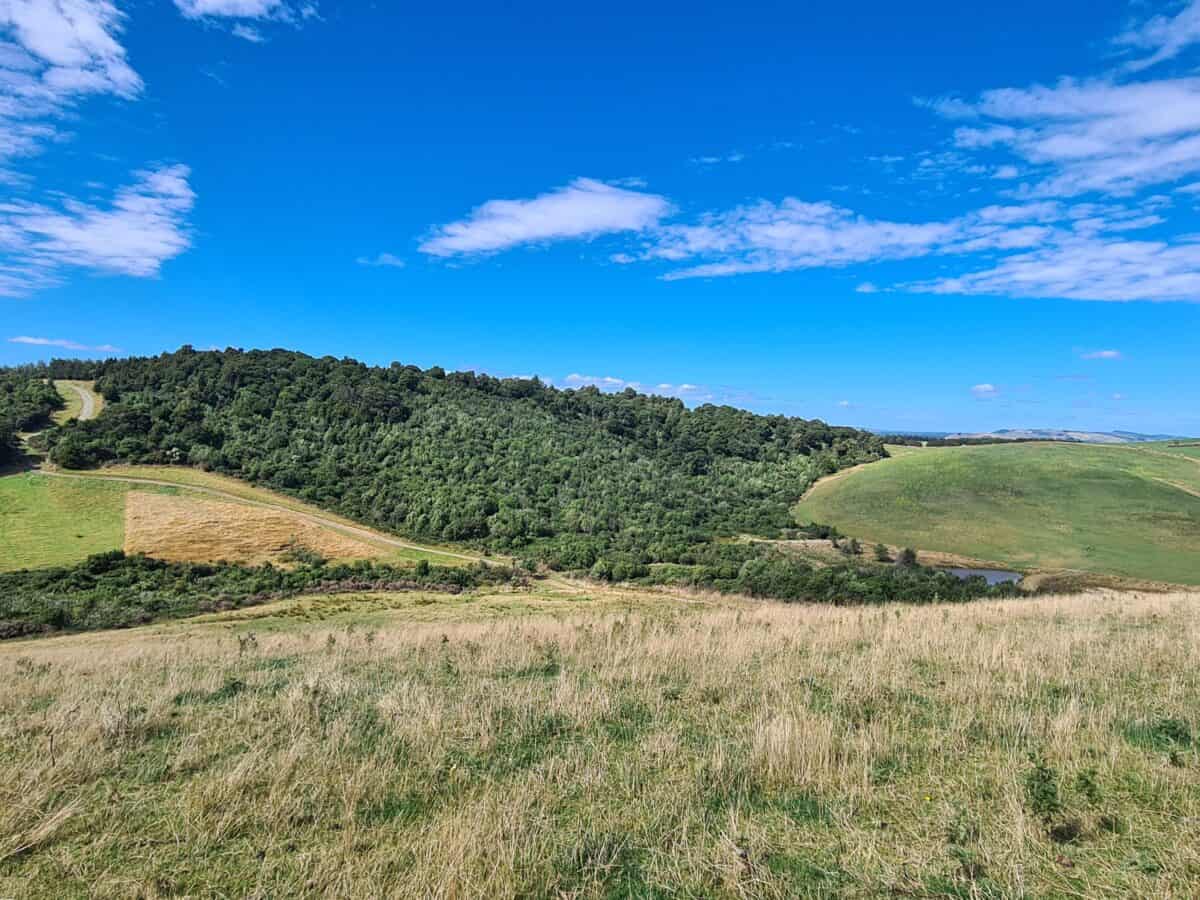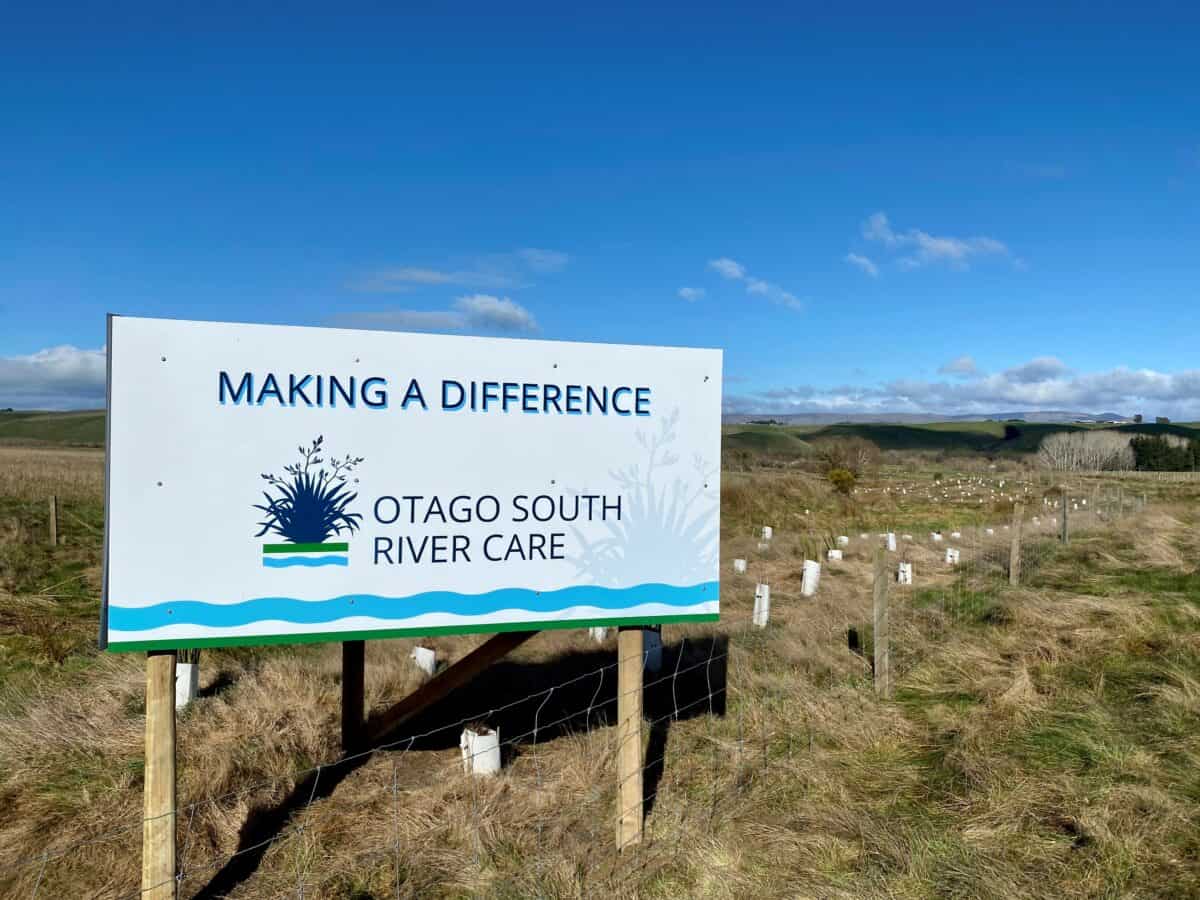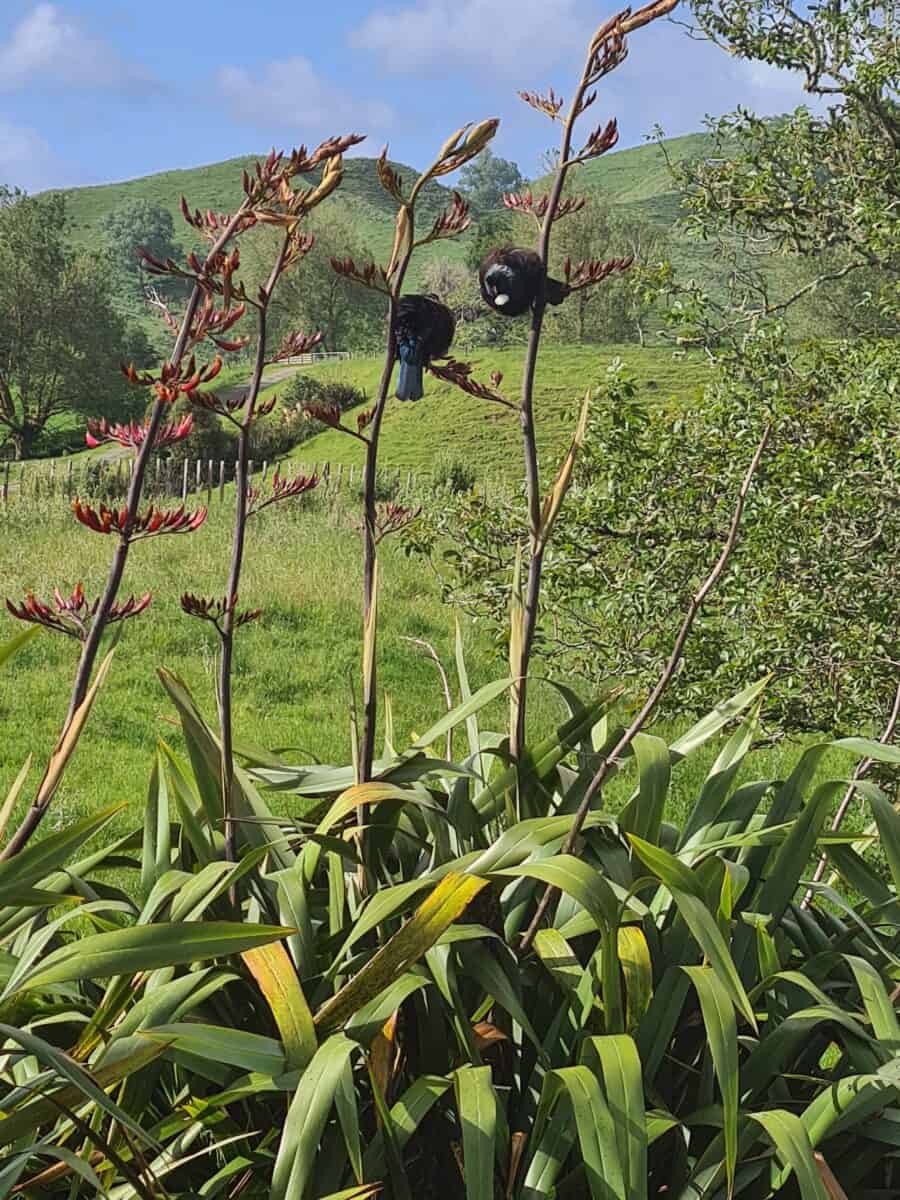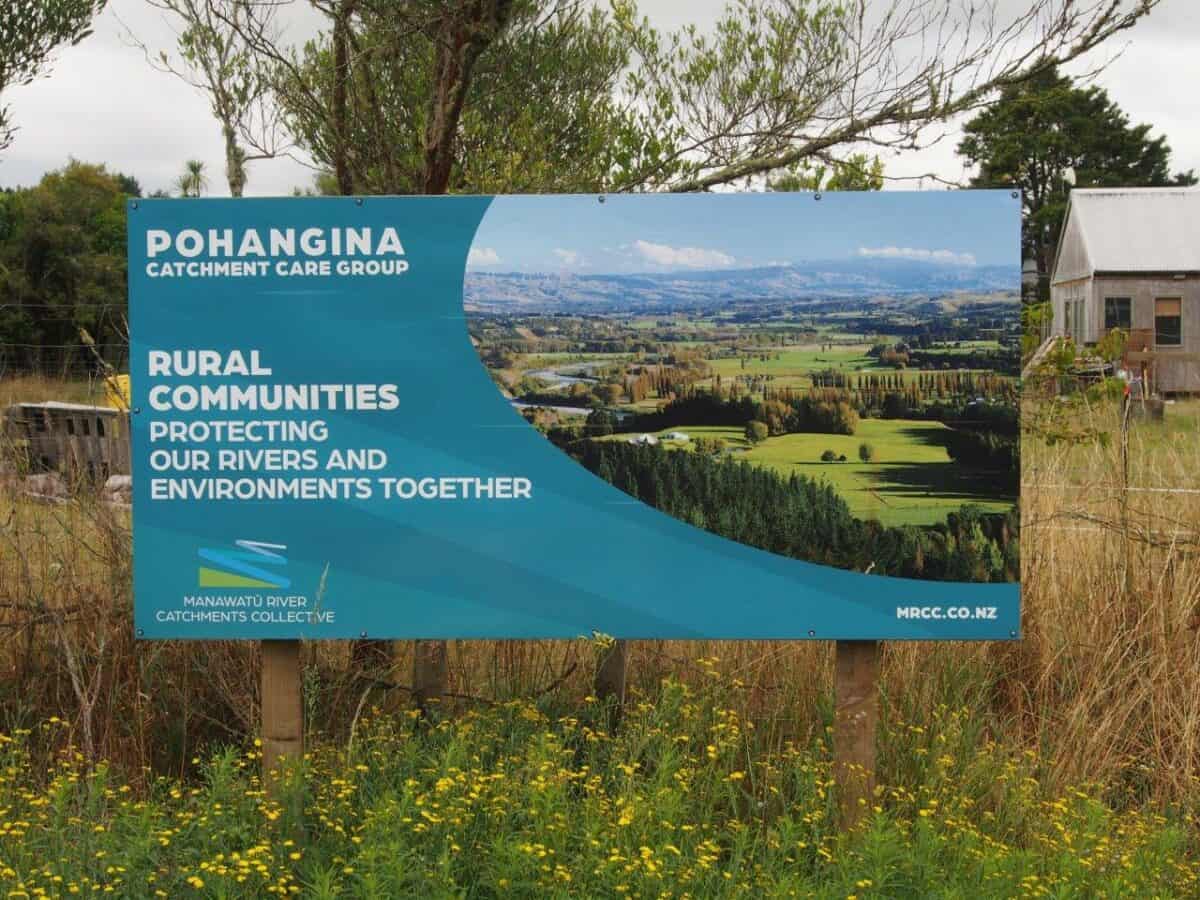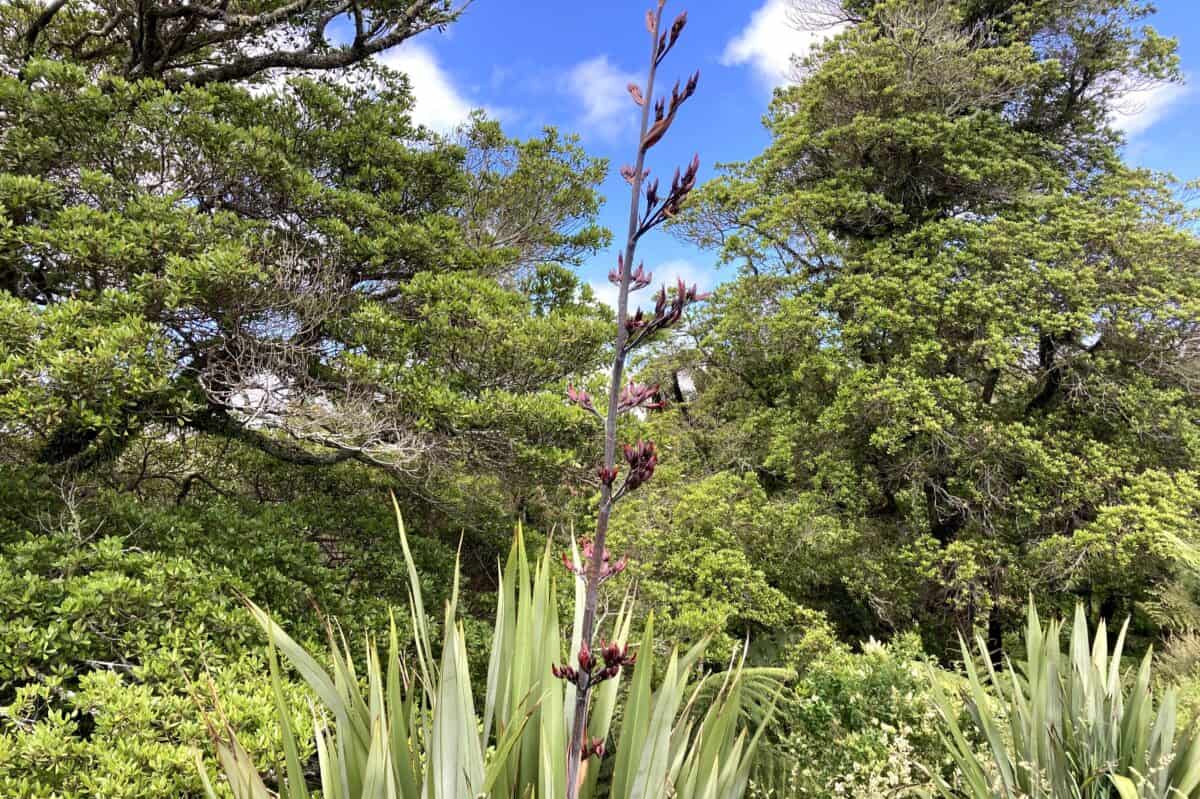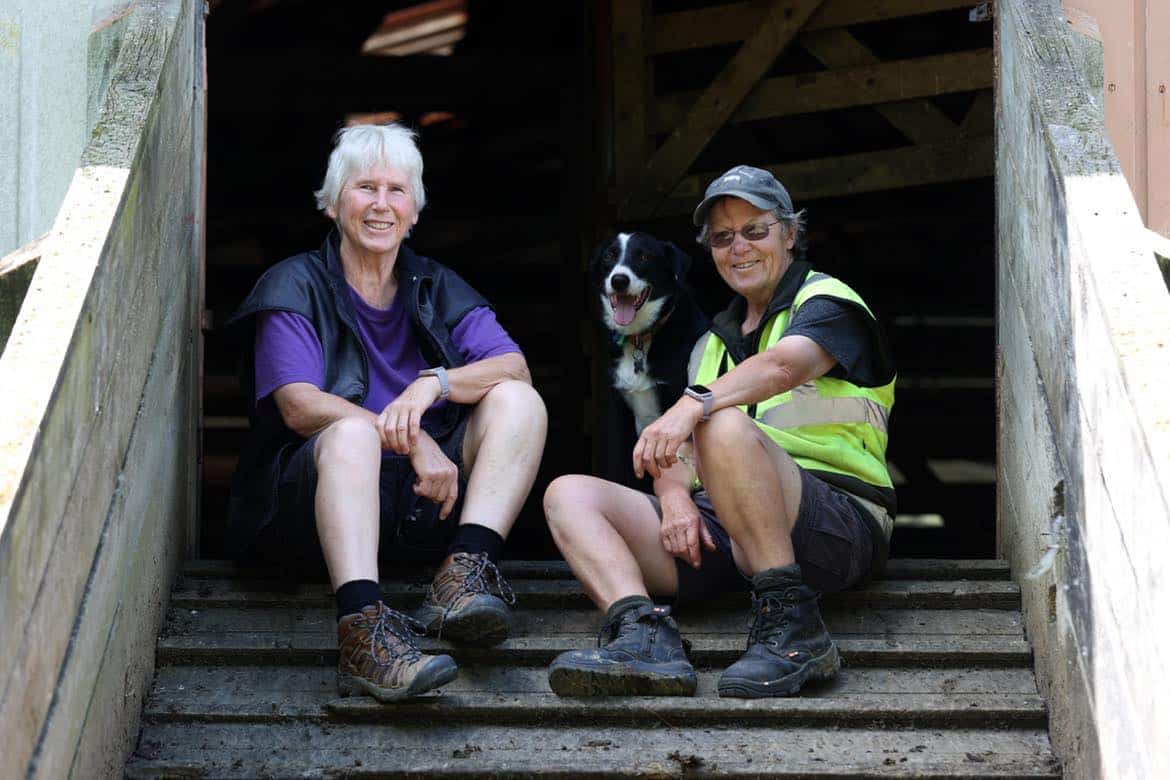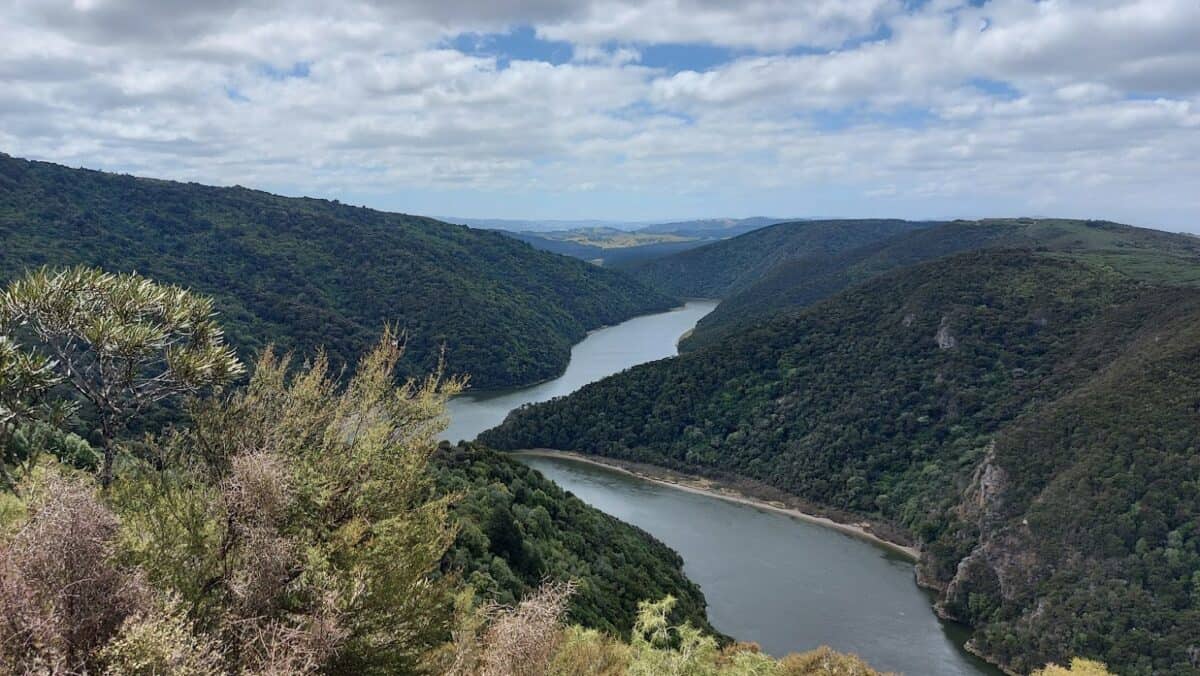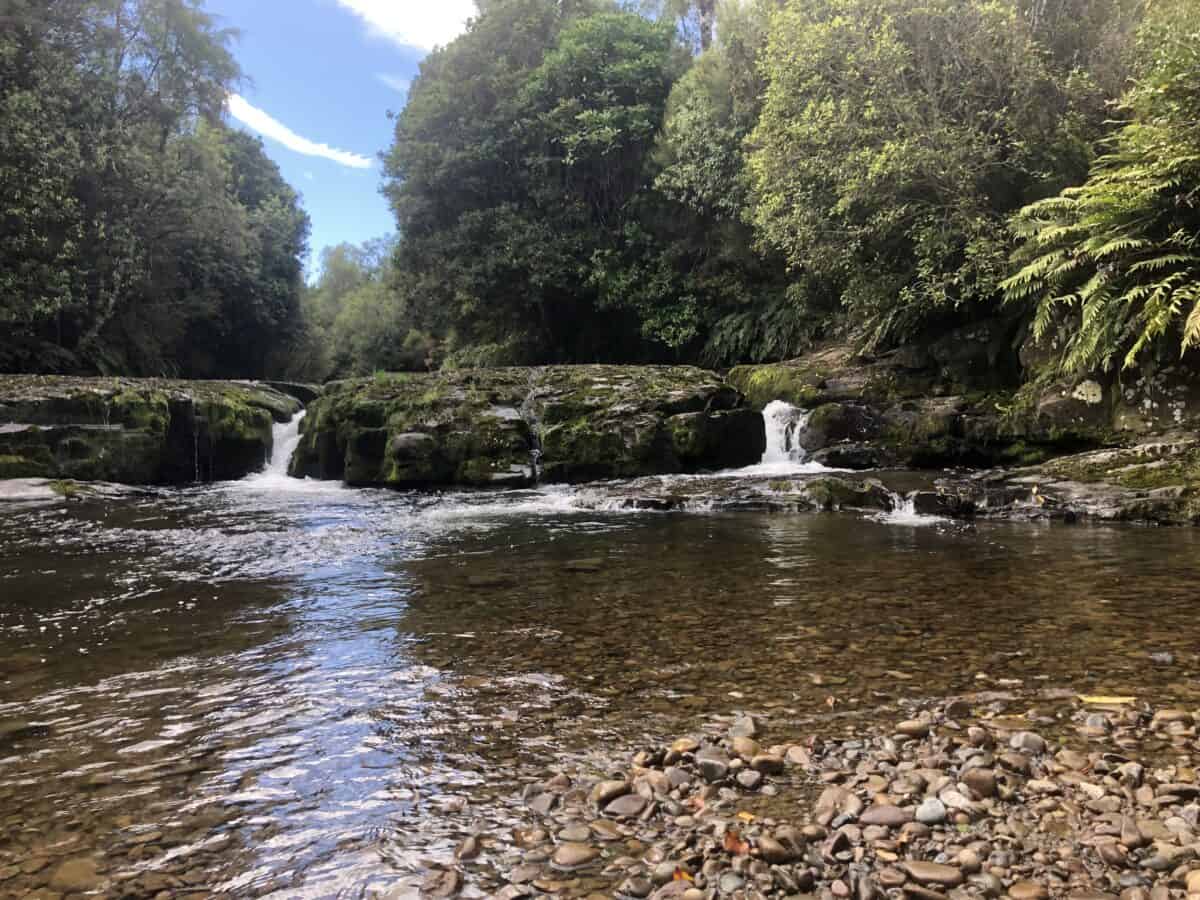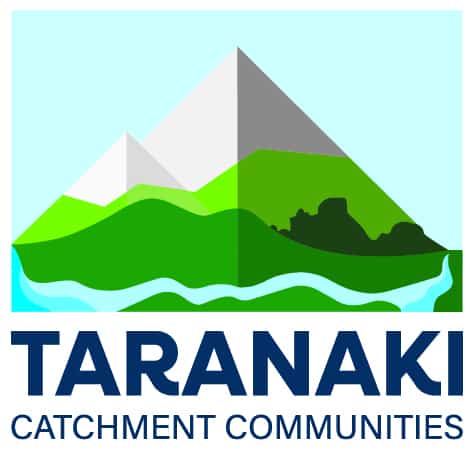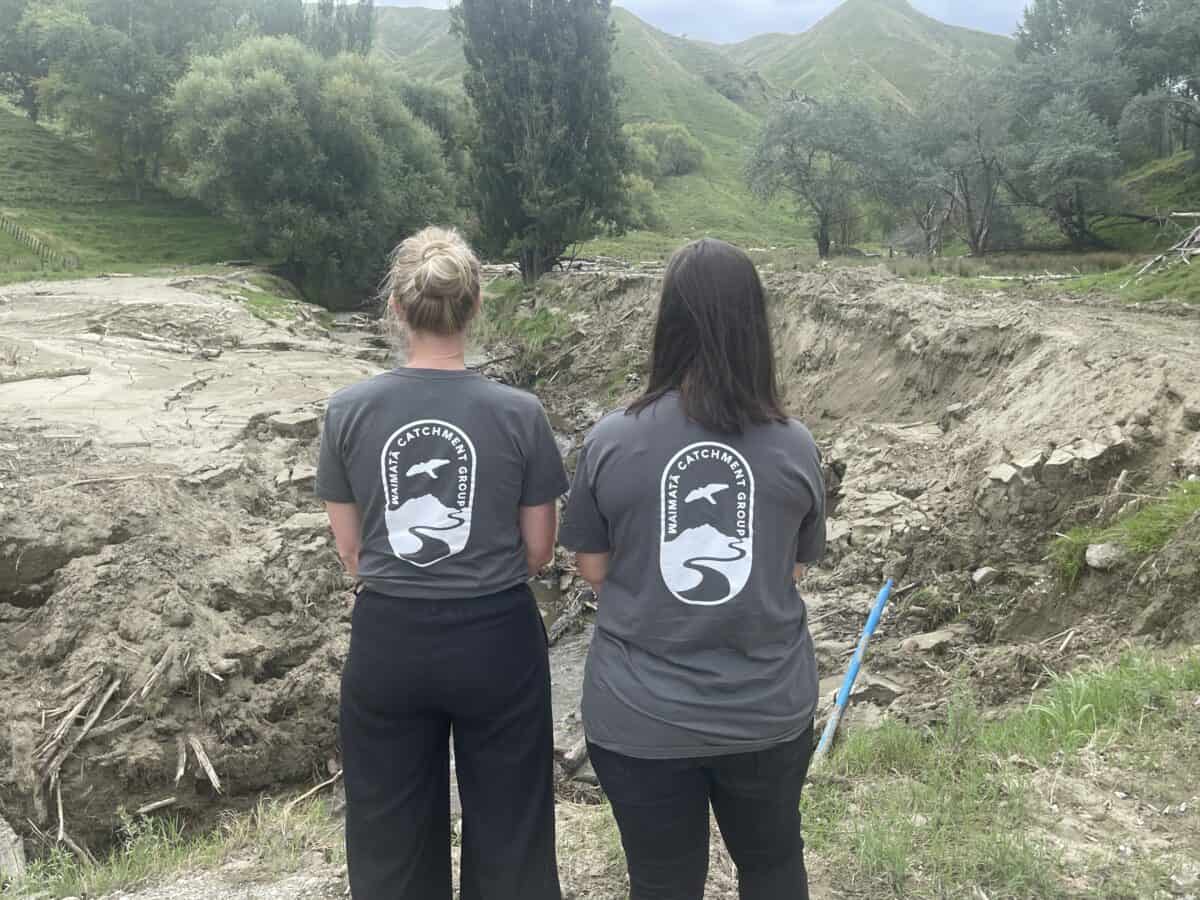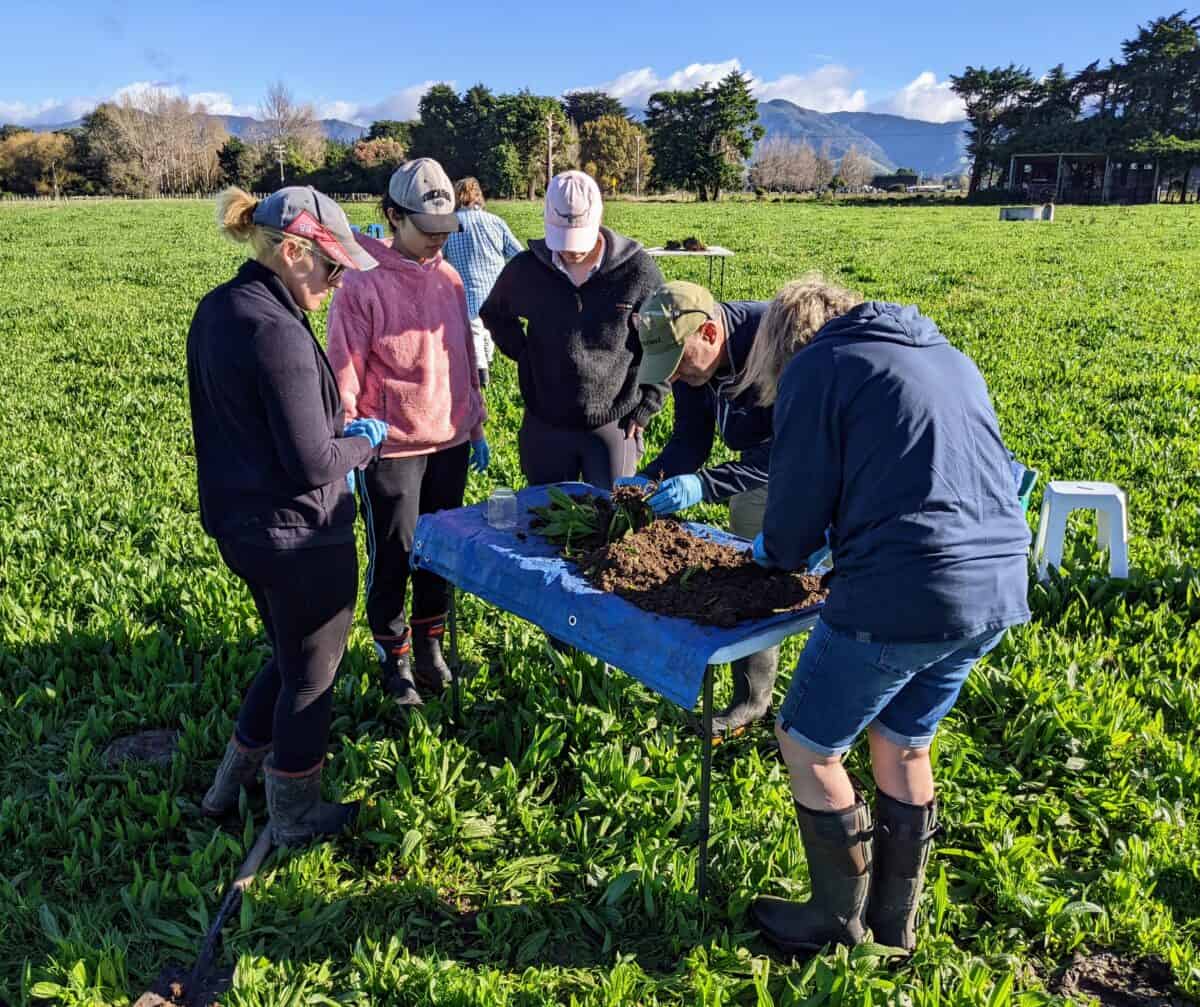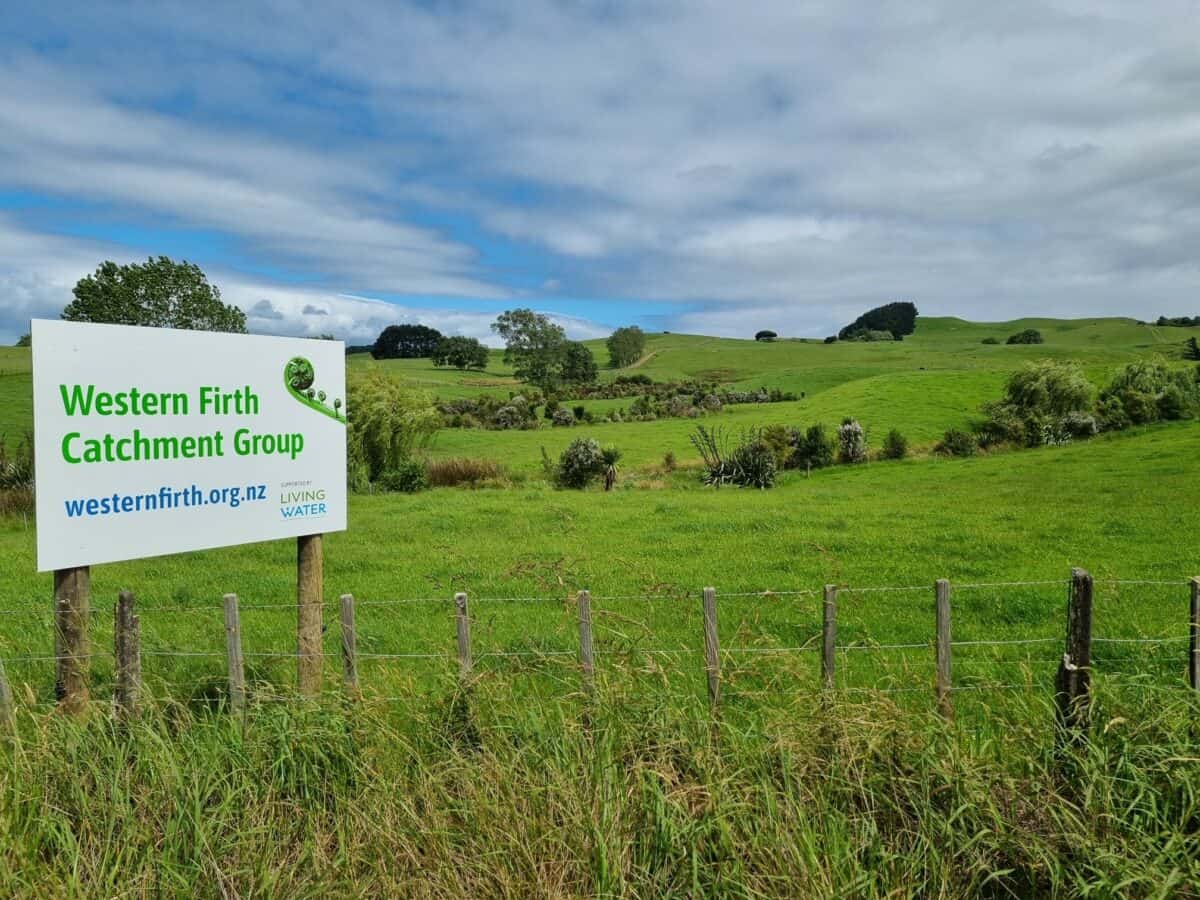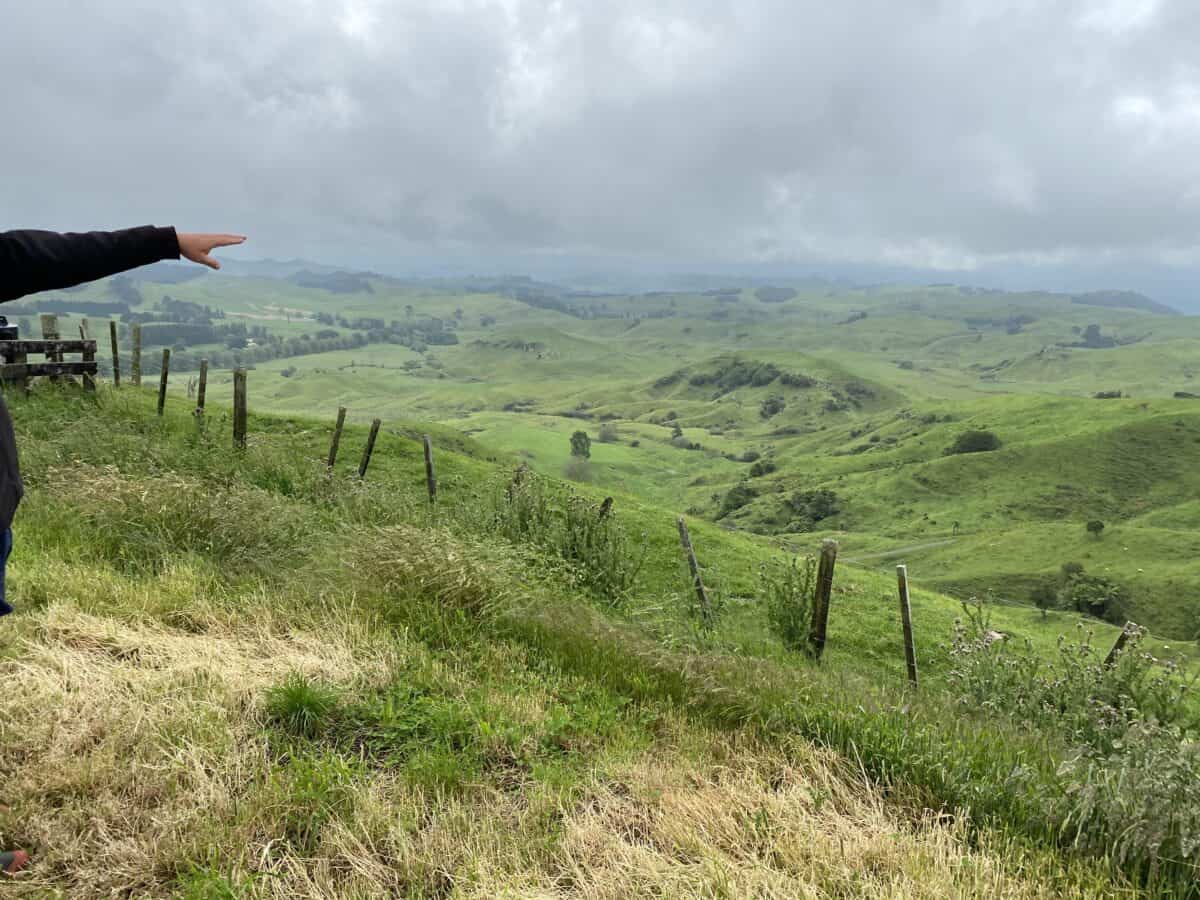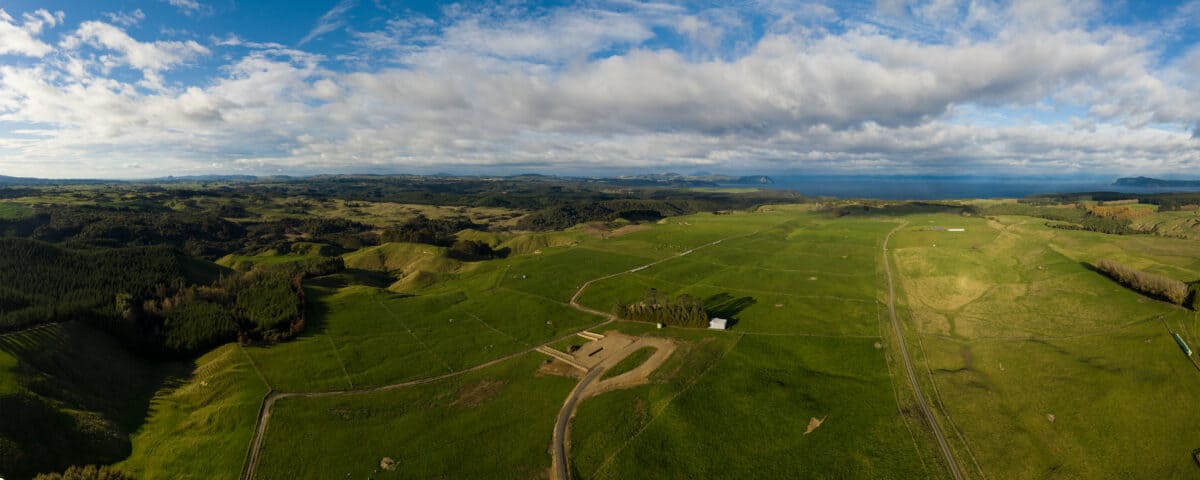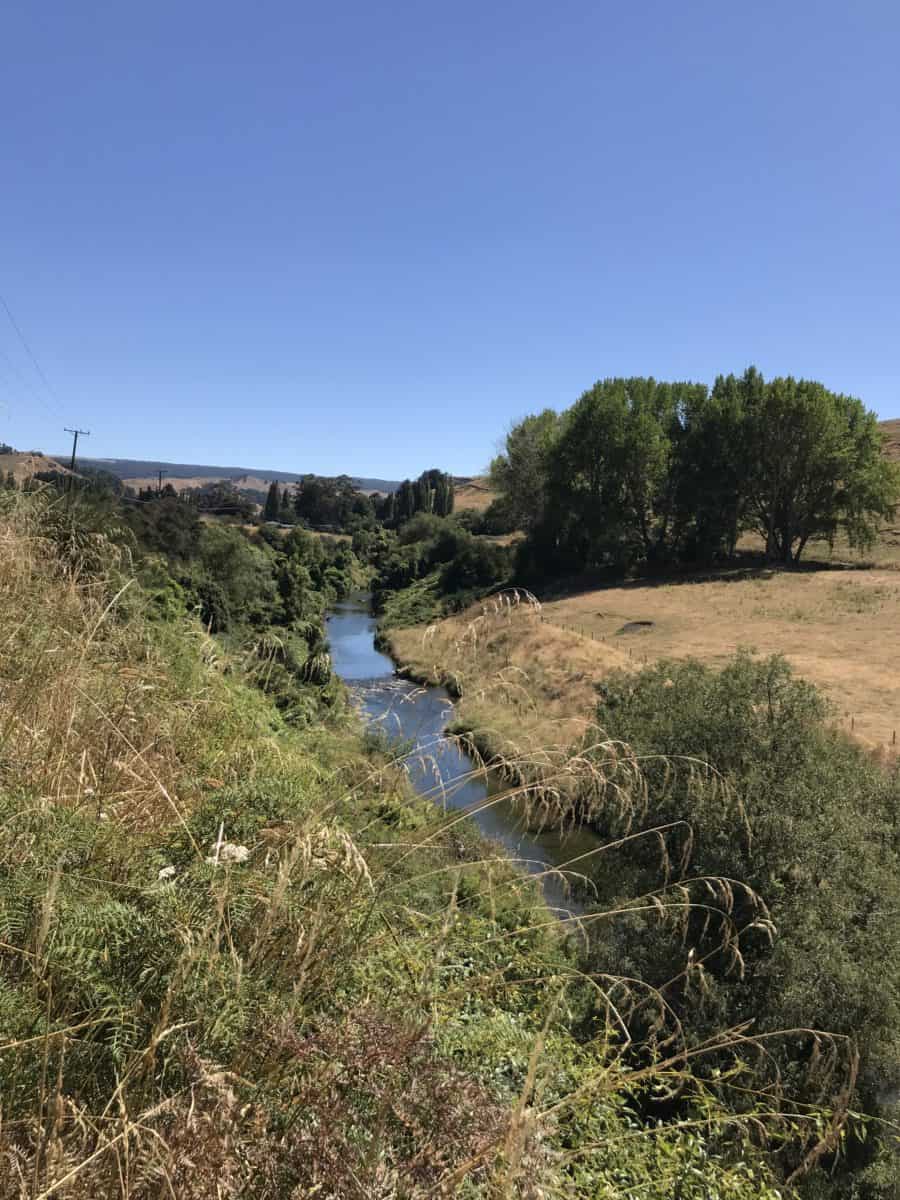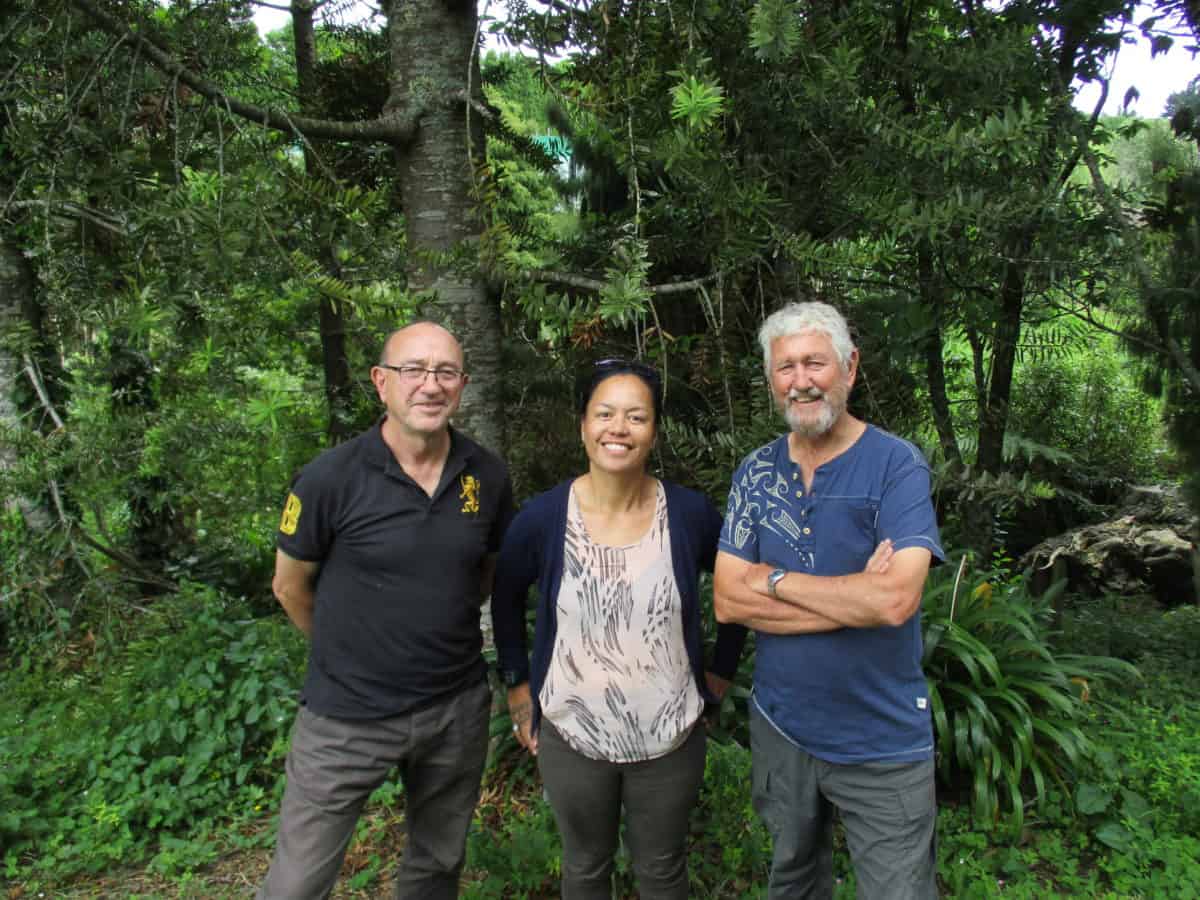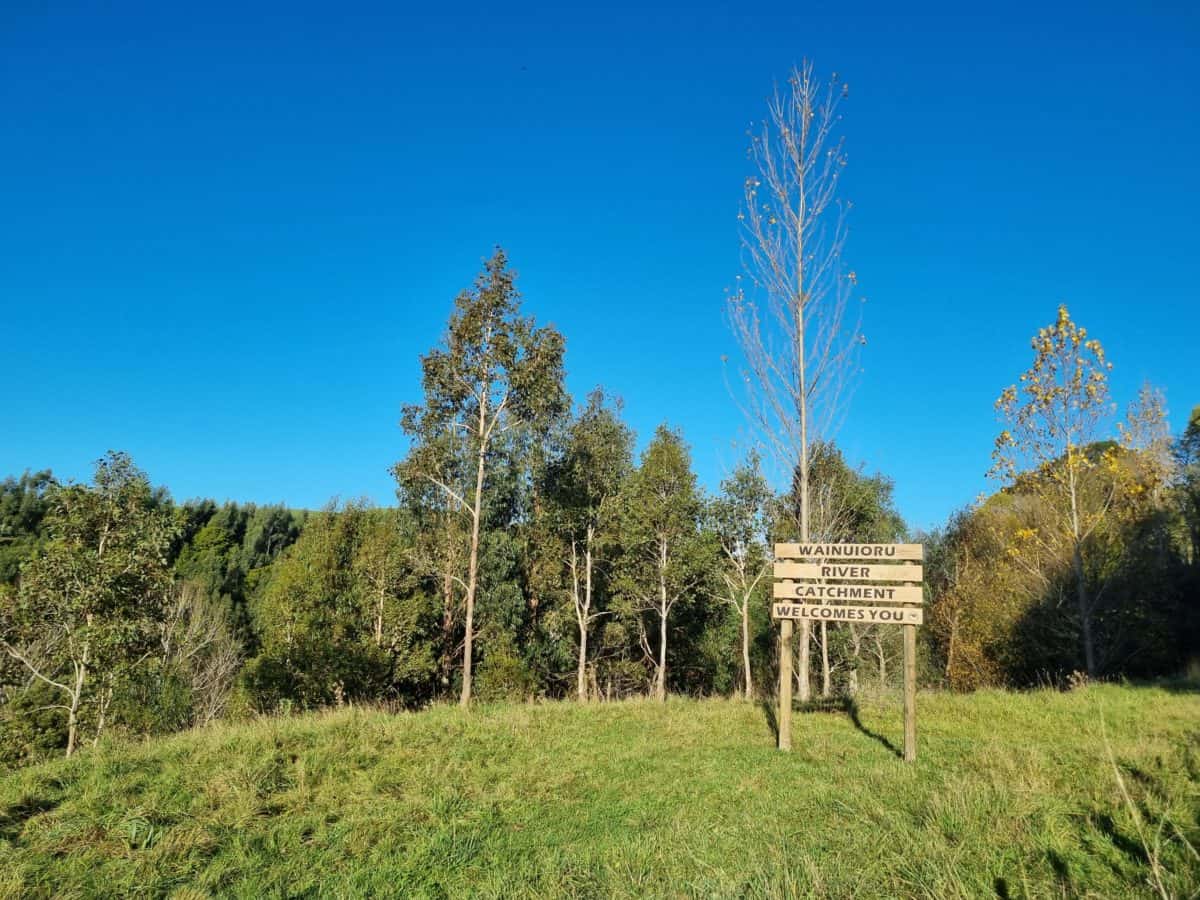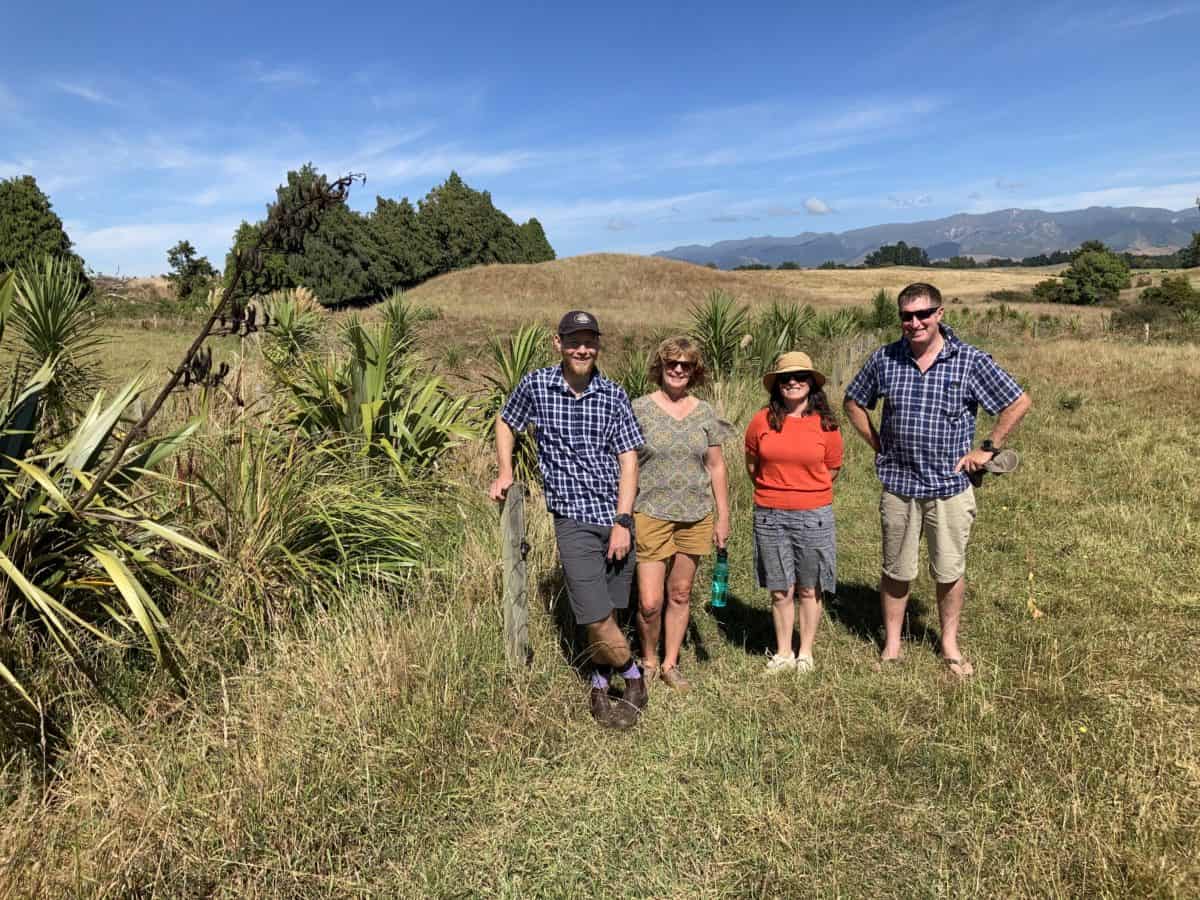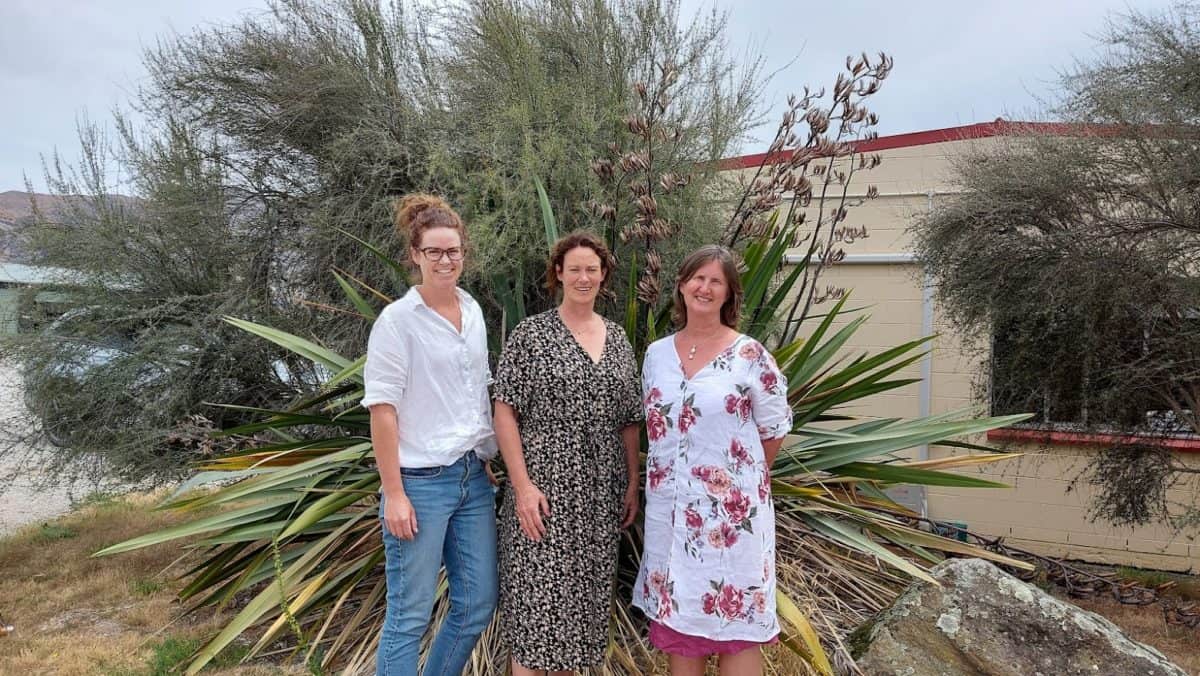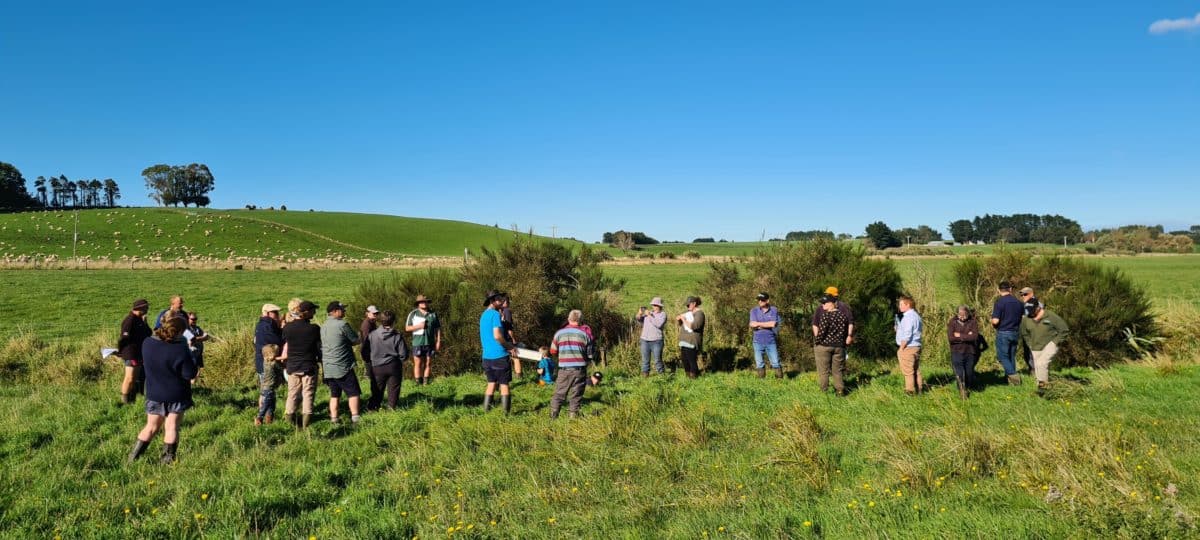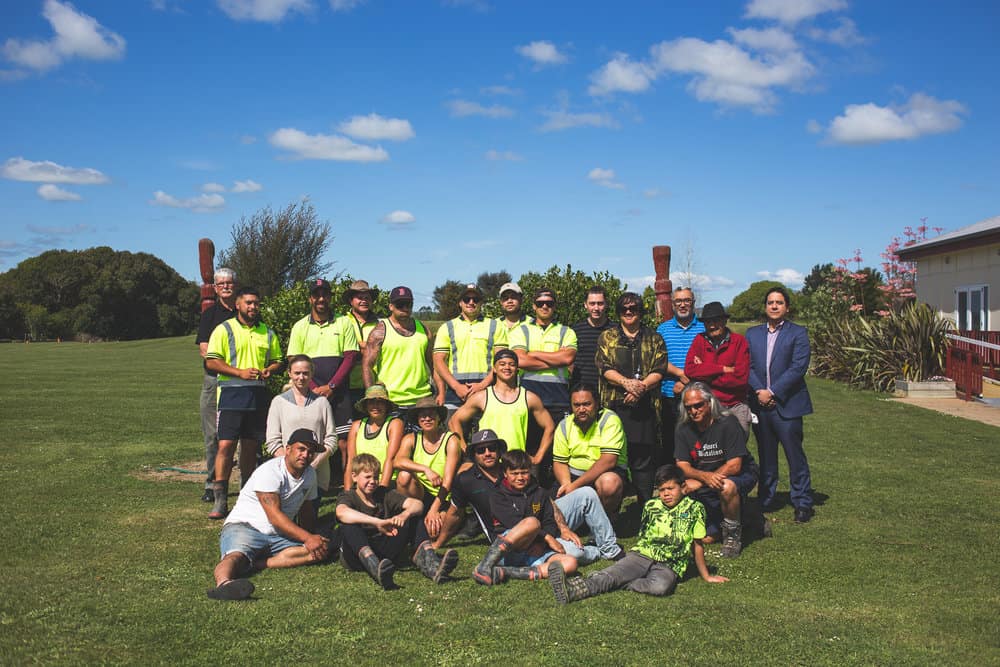Chef and good keen man Al Brown chats to members of the Pūniu River Care team, winners of the inaugural Catchment Group award at the Waikato Ballance Farm Environment Awards.
You’d think that after planting over 1.2 million trees and helping build over 60km of fencing around waterways, you’d deserve to put your feet up. But for Talitha Wanden, (Ngāti Maniapoto) and Quinton Tunono (Ngāti Raukawa ki Wharepūhunga) and the 47 other members of Pūniu River Care, they’re just getting started.
The catchment group was formed in 2015, to enhance the waters and replenish the taonga of the 57km Pūniu River – one of the longest secondary tributaries in the country and one that ultimately feeds into the mighty Waikato. The group’s difference and real strength is that it’s made up of the four marae and their hapū and iwi the river flows past (Mangatoatoa, Rāwhitiroa, Aotearoa and Whakamārama).
“We came together as a marae collective, crossing iwi boundaries, to create our own version of restoration,” Quinton says, “one that draws on mātauranga Māori, promoting practices grounded in Māori traditions and values.”
“Our stated vision is safe places, healthy waters, and healthy people. As our ancestors taught us, these are all connected,” adds Talitha.
The mahi is obviously paying off, with Puniu River Care (PRC) recently announced as winners of the newly created Catchment Group Award at the Waikato Ballance Farm Environment Awards.
Al Brown sits with the both of them and finds that it’s not just the trees that are flourishing.
Al: Congratulations on your win! Why is this river so important to you?
Quinton: Cheers! Growing up round here, I remember swimming, doing awesome bombs and catching eels. Our river was our playground and our food source. As kids you have this sense that it will be like this forever. That’s what we want future generations to have.
Talitha: We are part of the awa. It is part of us. We saw the effect the river condition was having on the health and wellbeing of our people. So we wanted to do something meaningful and practical – to be part of the solution and not be part of the problem.
Al: Tell me about the work you guys are doing?
Quinton: It starts with restoration work at scale. Most visibly we work with land owners and farmers to plant trees along the river. Planting stabilises the banks which arrests sediment depositing, allowing the true ecosystem to return. Talitha’s brother and one of PRC’s founders, Shannon Te Huia, projected that 80 million trees would need to be planted, so we’ve got a way to go!
Talitha: One of the first planting projects we completed as a catchment group was a re-constructed wetland near our nursery and in prime view on State Highway 1. A lot of the mānuka have really taken off and a kahikatea stand has also been planted amongst the many native riparian varieties, bringing what was once a thriving species, back to the area.
Al: How closely do you work with farmers along the river?
Talitha: The first step with a restoration project like this is to connect with those who can make a real difference to the area – the people who manage or own large areas of nearby land. So far we’ve established relationships with around 47 farmers.
Quinton: It’s about educating, building trust, and creating long-term partnerships. We provide the trees ‘in-kind’ and the farmers help prepare the areas by helping remove old fences and building new ones. It’s fantastic to see how in tune farmers are to the need for an environmentally sustainable approach.
Al: And how does the planting benefit the group and community?
Quinton: Our goal is to create a sustainable organisation that benefits the community for generations. We’ve established a nursery by Mangatoatoa Pā, propagating over a million plants a year. They are all selected to preserve the original species from within the Pūniu catchment.
Talitha: We have a hugely diverse group of people working together who really feel part of something empowering and meaningful. The PRC catchment group is like a tree – branching out into education, providing horticultural and project management training in partnership with WINTEC; supporting local businesses like fencers; and establishing long term connections with farmers as well as local and national funding and environmental bodies.
Al: And it grows and grows – that’s awesome. So how was your BFEA experience?
Talitha: We were advised to enter by one of our funding partners. It was quite a new experience for us but we saw it as a great way to keep learning. We met some amazing farmers doing incredible things and they and the awards really fit with our view that only with an open door around sharing information can we all grow.
Quinton: Entering was never about the award itself, but we were stoked and humbled to be recognised. Bringing the kai back to the awa and putting smiles on the old people’s faces – those are the accolades we are after! But we feel very grateful to be able to tell our story and it’s been a huge source of mana for our people.
Al: What does the future hold for the catchment and beyond?
Quinton: We have to look to the past to go forward. We draw on our local history as told to us by our kaumatua; what kai was found around the awa, how did they get it, what trees flourished. As a country we’ve manipulated the environment long enough. Now it’s time to work with it the way our ancestors did. Within the group we hope to see similar programmes emerge in other parts of the country. We always talk about the importance of meeting local challenges with local solutions. It’s an inclusive approach that draws in the entire community.
Al: Love that! Lastly, of all the kai that comes off the land round here what’s your favourite?
Quinton: We grew up hearing stories of kōura and freshwater mussels in plentiful supply. We’re starting to hear of these coming back. Hopefully in a generation or two, there will be enough for everyone. I can’t wait.
Talitha: You can’t beat smoked tuna (eel)! The new Catchment Group award recognises the efforts of rural communities to work together to improve water quality in their area.
Enter the Ballance Farm Environment Awards
